In Fall River, homeless people are cleaning up the city. It's a path back to the workforce
FALL RIVER — The city, in partnership with the Bristol County Training Consortium, has rolled out a new pilot work program employing homeless residents and providing skills and counseling to get their lives back on track.
Mayor Paul Coogan said the idea for a work program came after the administration was doing a lot of work with homeless residents and at homeless camps around the city last winter.
“I said that we have to do something more permanent, get some money in their pockets and try to get them back into a routine. I’m a strong proponent of work,” said Coogan. “We are trying to get people back into the workforce, which is what this is about.
“Some of these people have been forgotten; we’re not going to do that,” said Coogan.
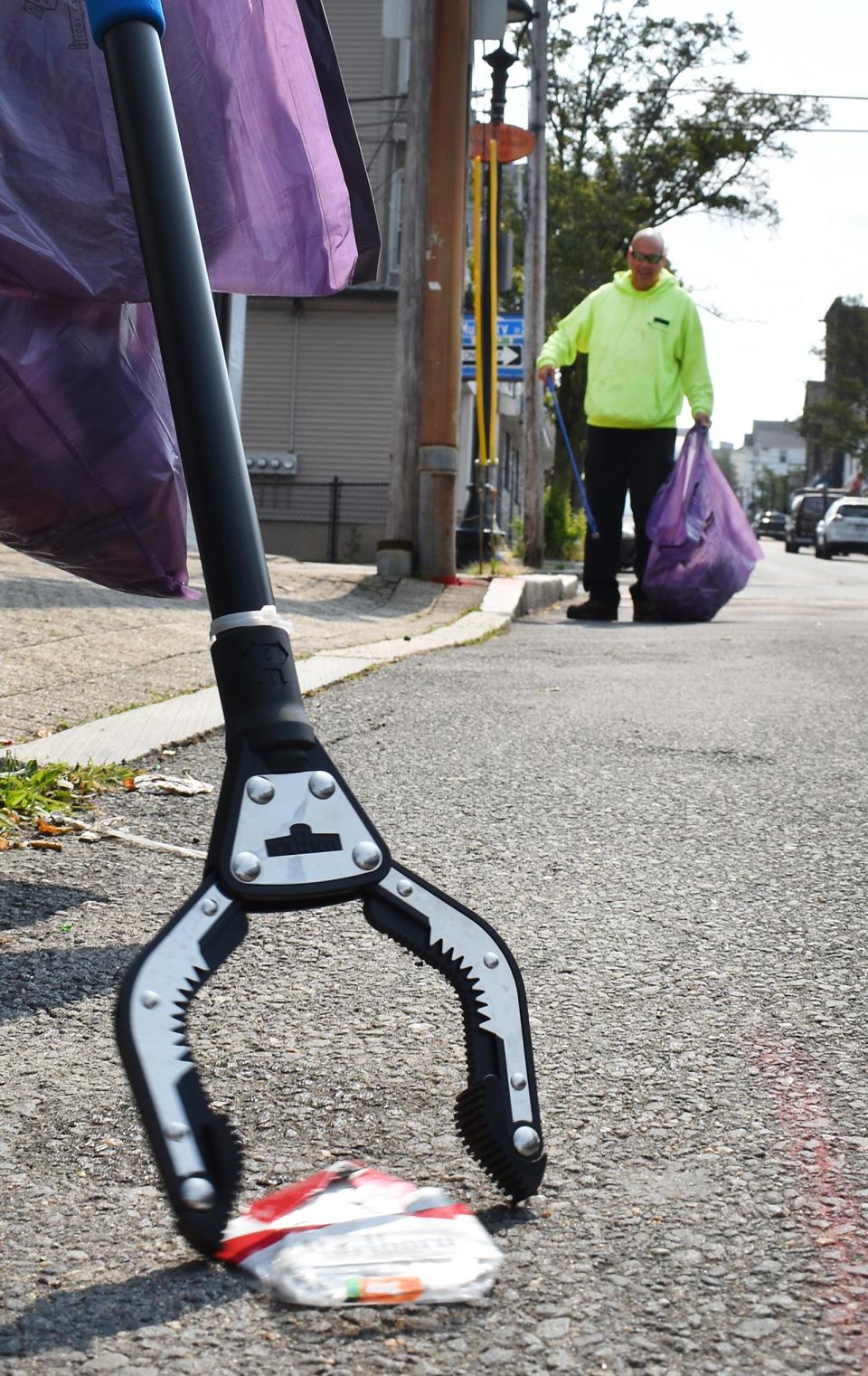
Work crews tasked with helping to clean up the city
On Wednesday, a crew of five workers, the first team hired for the pilot program, were on Columbia Street cleaning up trash. The day before, the crew was working on Bedford Street on clean-up in that part of the city.
“It feels great to wake up in the morning and have something to do. It gives me a sense of purpose,” said 42-year-old Shaun Rebello.
Before falling on hard times, Rebello said he’d worked as a telemarketer, a landscaper and a forklift operator.
“I’m a jack-of-all-trades, master of none,” joked Rebello.
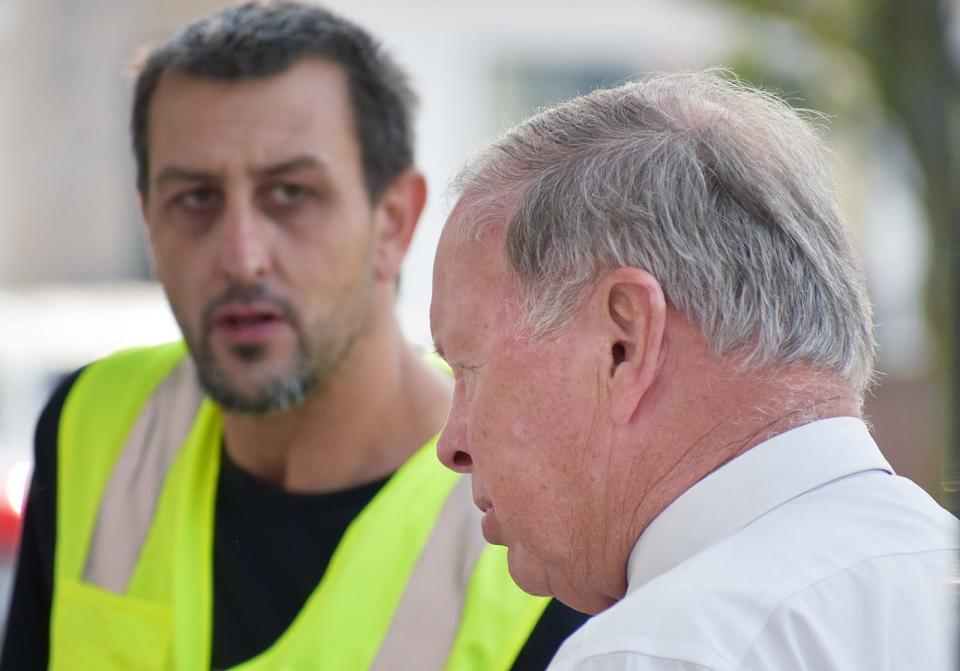
“Born and raised in Fall River on Canal Street,” Rebello said he’s been living in a tent, unable to afford the cost of rent on a Social Security check.
Regarding the work of cleaning up trash, Rebello is happy with it, saying, “Some of us still have pride in the city.”
How the Timao Center helps homeless people
A client at the Timao Center on Bay Street, Rebello said he doesn’t know what he would do without the help of the nonprofit organization run by the Spindle City Church, formerly Solomon’s Porch, at 371 Bay St.
Moving on: Fall River dismantles 'dangerous' homeless camp and offers outreach assistance
Rebello and others dealing with homelessness have a safe haven at the Timao Center, which provides meals, shelter, showers and laundry facilities, as well as providing life skills and social support.
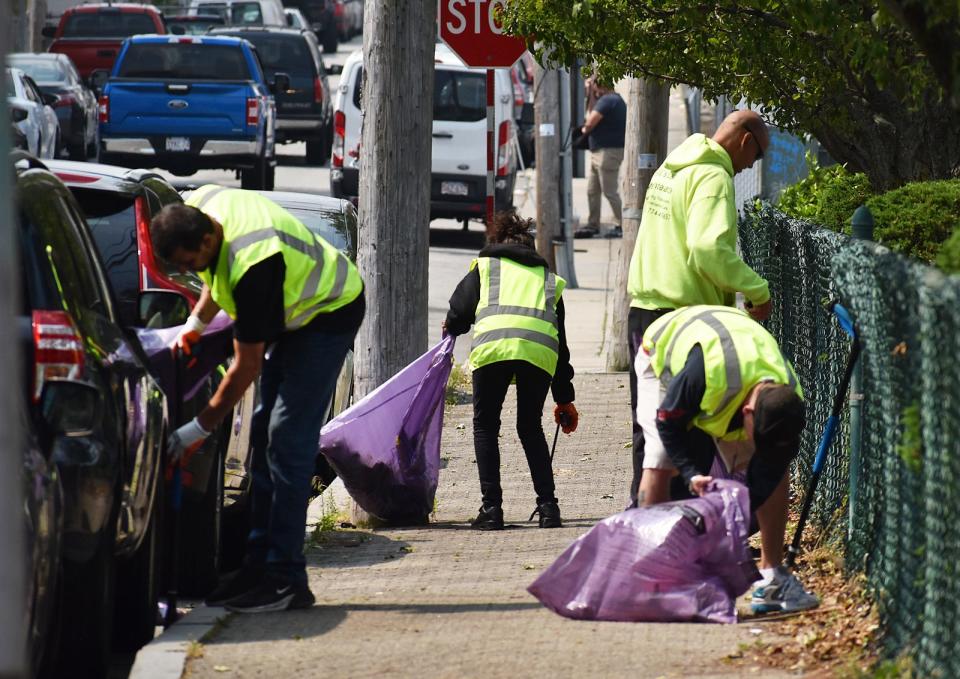
Laundry, lunch and a shower: How this new Fall River homeless shelter is helping people.
“It gives you a little bit of dignity, you know,” said Rebello.
Full-time employment and housing are Rebello’s goals, that will bring “some kind of stability.”
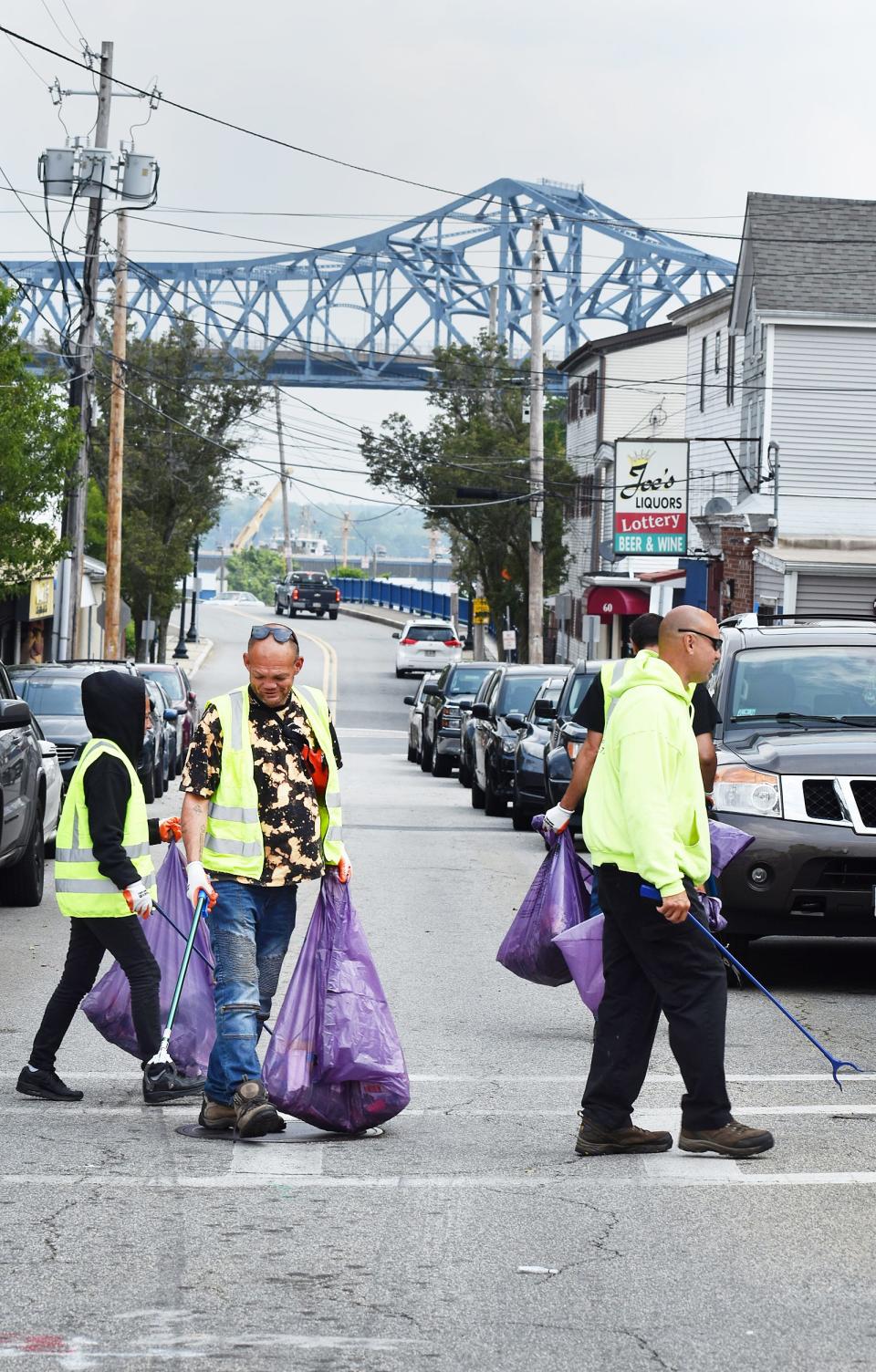
Pilot program a transition to full-time work
Michael Dion, head of the city’s Community Development Agency, has worked closely with the Timao Center with both programming development and funding.
“The goal here is to get this pilot program with the five individuals to get full-time jobs that they enjoy,” said Dion. “We want a commitment from the workers. We’ve set up bank accounts with direct deposit. We are paying them a good hourly rate. Working with the Timao Center, we want to get them housing and a good job.”
How does the pilot program for homeless people work?
Four days a week, the workers report to their assignments for the day at 9 a.m. until noon, when they head to the Timao Center for lunch. On Fridays, they go to the center for an hour of soft skills training from BCTC like resume writing, budgeting and job search.
Compassionate help: Fall River's homeless have support as they face struggles
Coogan said with workers like Rebello, when he completes the program successfully, he’ll be transitioned back into the workforce.
“I like to hear that,” said Rebello. “Some of us are trying to get out of this. Sometimes it's like being stuck on a treadmill.”
“That’s what we’re trying to do is bring them back,” said Coogan.
“And you're doing it,” said Rebello.
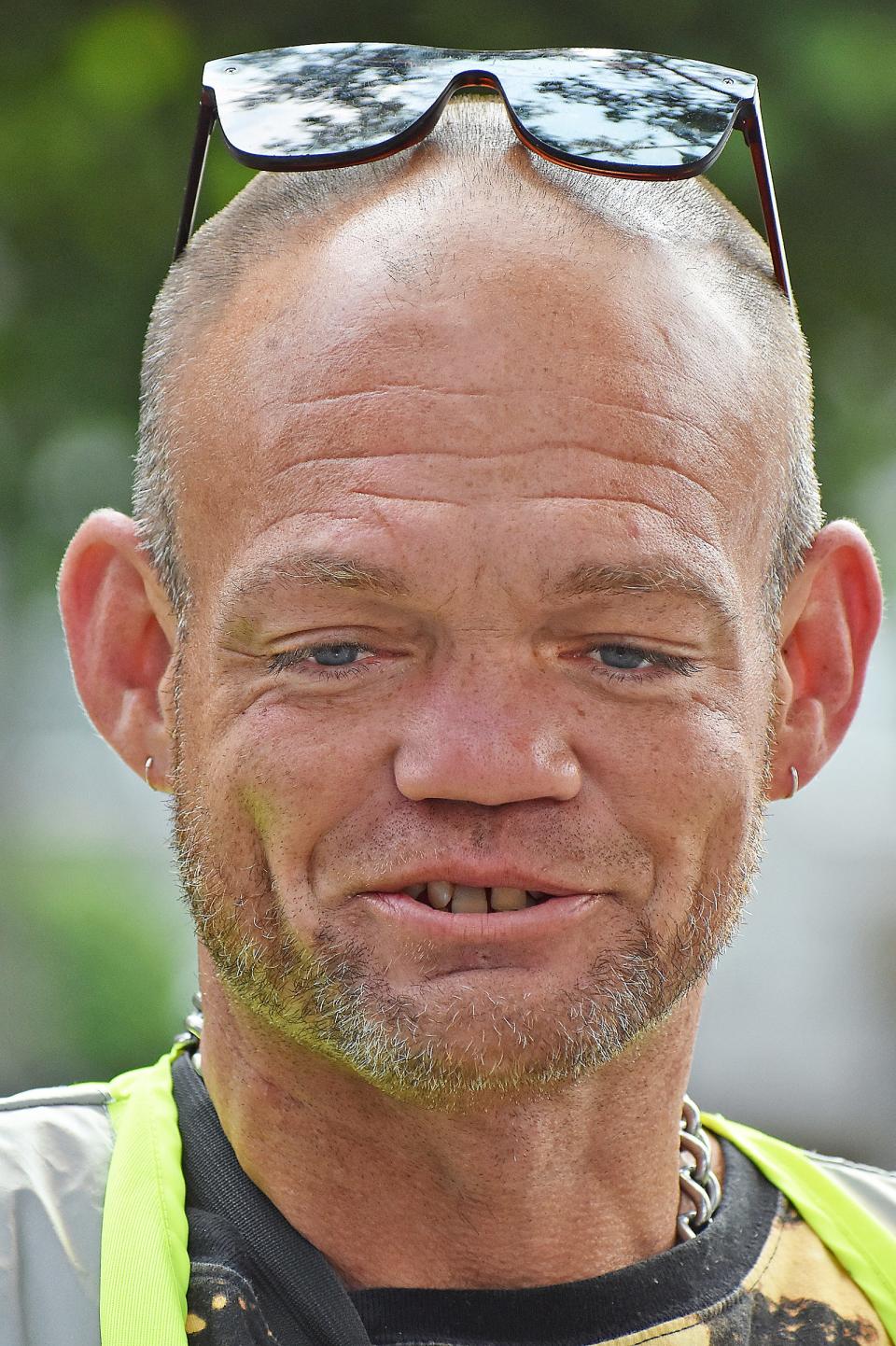
What this means for people getting back into work
Chris Paiva, originally from Newport, Rhode Island, before he fell on tough times and became homeless, said he is happy for the opportunity to help clean up the city and start to return to the workforce again.
“I appreciate it and other people have said the same, to make this nice,” said Paiva. “I’ve always had a job until I had heart issues about 1½ years ago. It kind of stopped everything. I lost my job, I lost my house, just four months ago. So now I’m homeless.”
Worker Benjamin Valois joined the program with a plan after he saw a flyer for the program at the shelter, One Step Inn.
“I took advantage of it,” said Valois. “I’m hoping to get a good job out of the deal. Maybe the city's parks department or at cemeteries.”
How the Bristol County Training Consortium is involved
BCTC Executive Director Holly Hill-Baptista, whose agency is funding the training program and wages to the workers, said the result is to get homeless folks in unsubsidized employment.
“What we’re going to do is bring our experts, the people who get people jobs, to them in their safe space for the first few weeks. Then we’ll transition them, so they’ll come to the career center so that they’ll continue to learn about how to do resumes, how to look for jobs, all that good stuff.”
Hill-Baptista said the pilot program, which pays the workers $15 an hour, is low cost.
“We want to see what we to learn from it, maybe tweak it a little, and improve it,” said Hill-Baptista. “Yes, we are excited about it.”
This article originally appeared on The Herald News: Fall River's homeless pilot program is geared to getting back to work

